God wishes to be seen, wishes to be sought, wishes to be expected, and wishes to be trusted.
JOHN ORTBERGRelated Topics
Anand Thakur



God wishes to be seen, wishes to be sought, wishes to be expected, and wishes to be trusted.
JOHN ORTBERG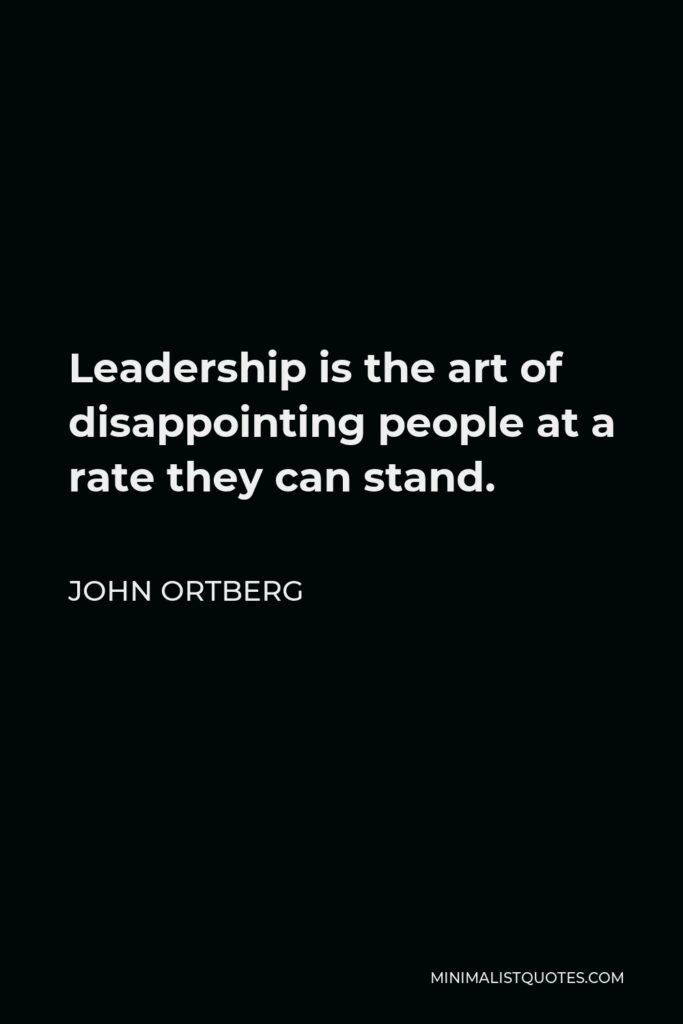

Leadership is the art of disappointing people at a rate they can stand.
JOHN ORTBERG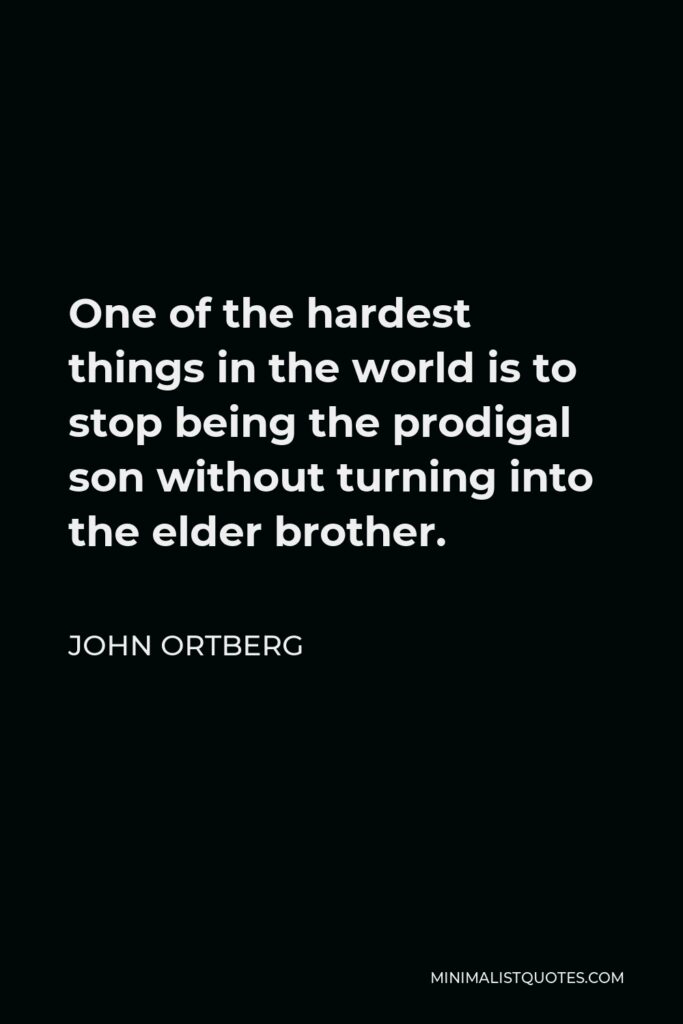

One of the hardest things in the world is to stop being the prodigal son without turning into the elder brother.
JOHN ORTBERG

Habits eat good intentions for breakfast.
JOHN ORTBERG

One of the most painful aspects of suffering is the loneliness of it. Others may offer support or empathy, but no one can walk the road to Moriah in our place.
JOHN ORTBERG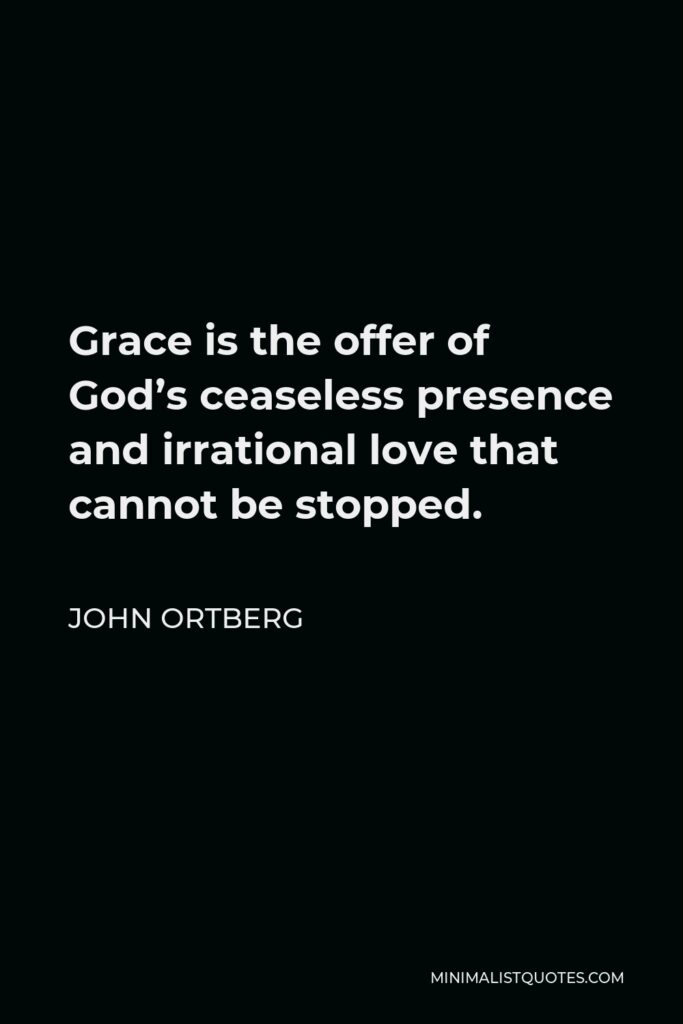

Grace is the offer of God’s ceaseless presence and irrational love that cannot be stopped.
JOHN ORTBERG

If you want to do the work of God, pay attention to people. Notice them. Especially the people nobody else notices.
JOHN ORTBERG

Our beliefs are not just estimates of probabilities. They are also the instruments that guide our actions.
JOHN ORTBERG

The most important task of your life is not what you do, but who you become.
JOHN ORTBERG

Acceptance is an act of the heart. To accept someone is to affirm to them that you think it’s a very good thing they are alive.
JOHN ORTBERG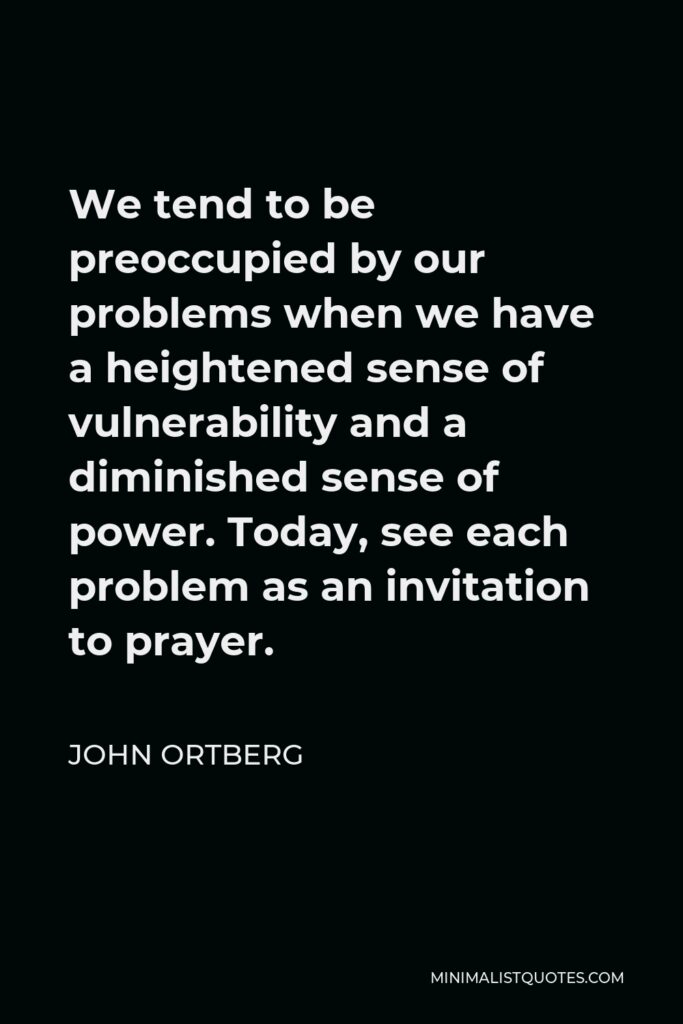

We tend to be preoccupied by our problems when we have a heightened sense of vulnerability and a diminished sense of power. Today, see each problem as an invitation to prayer.
JOHN ORTBERG

The test of love is that it gives even when there is no expectation of a return.
JOHN ORTBERG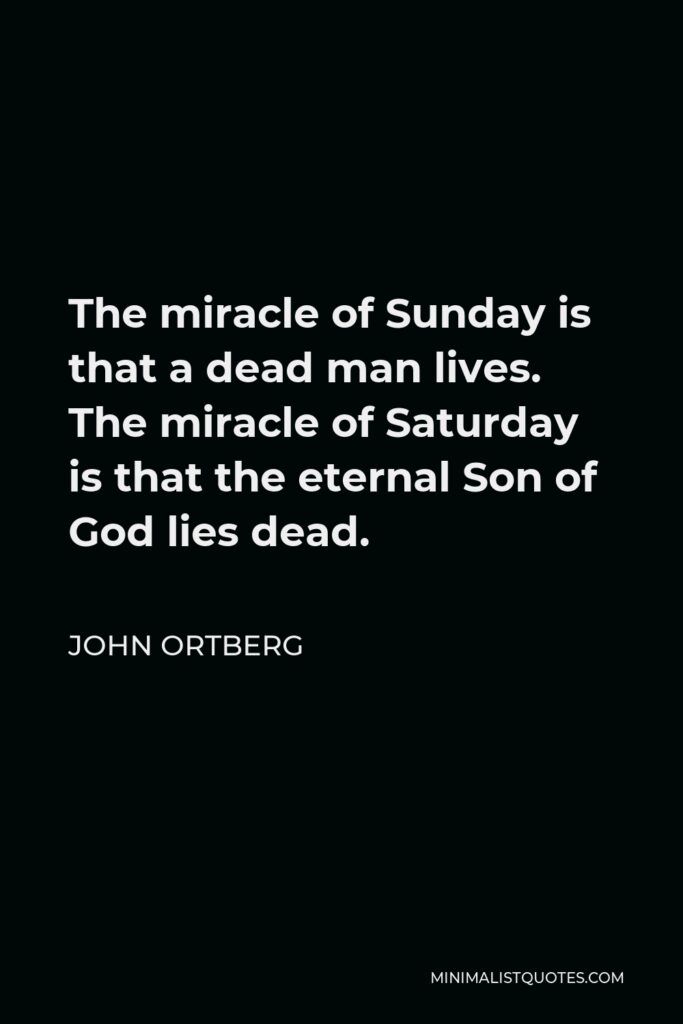

The miracle of Sunday is that a dead man lives. The miracle of Saturday is that the eternal Son of God lies dead.
JOHN ORTBERG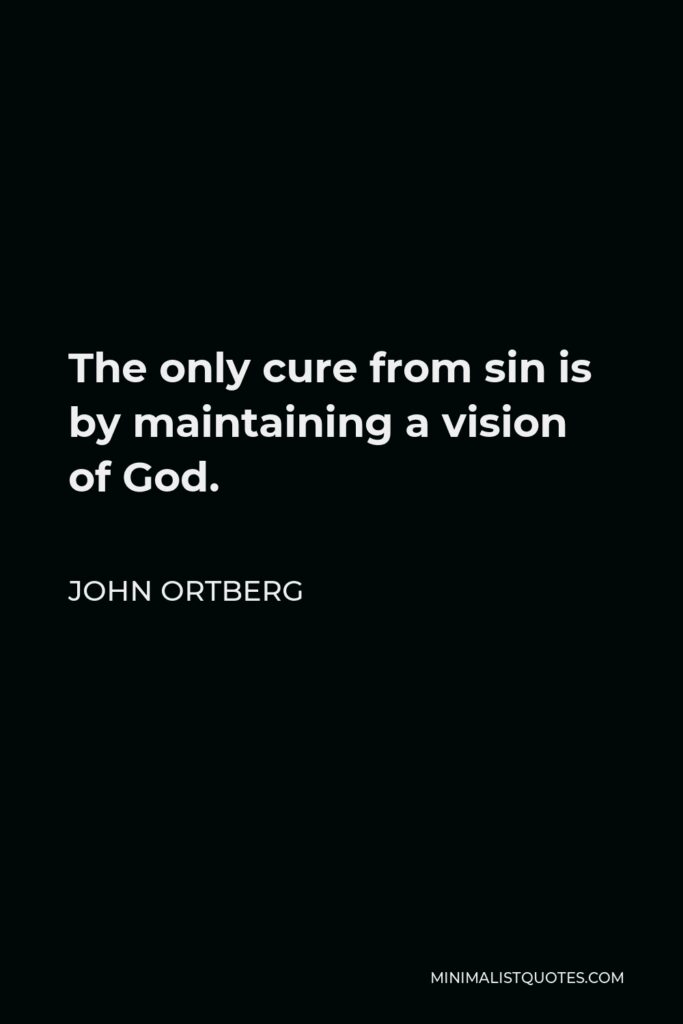

The only cure from sin is by maintaining a vision of God.
JOHN ORTBERG

We are too often double espresso followers of a decaf Sovereign.
JOHN ORTBERG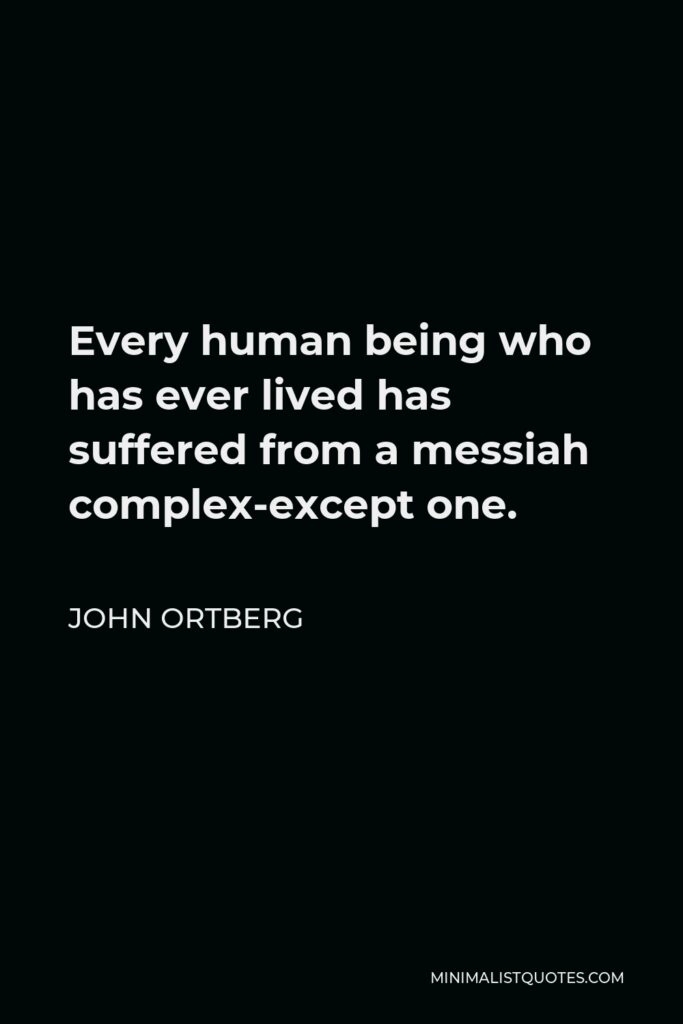

Every human being who has ever lived has suffered from a messiah complex-except one.
JOHN ORTBERG